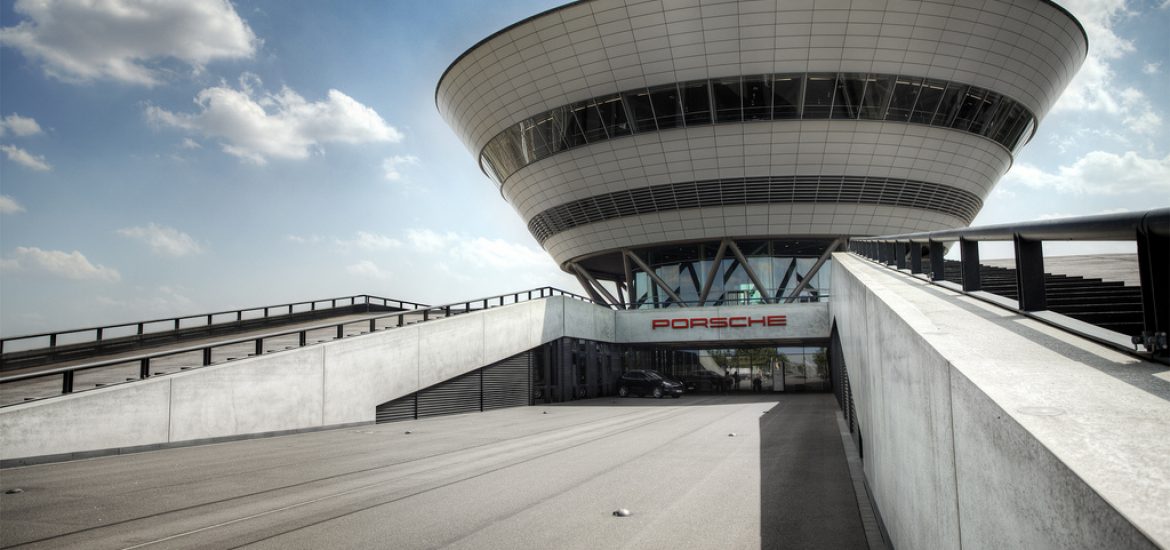
Porsche claims that battery suppliers are struggling to keep up with demand for the Panamera hybrid model.
The car combines an internal-combustion engine with electrical propulsion and Panamera hybrid production has reportedly doubled since last December. Porsche said it had manufactured about 8,000 of the hybrids this year.Gerd Rupp, head of Porsche’s manufacturing hub in Leipzig, where the vehicle is produced, said there were supply issues looming. The company was facing limitations, due to the inability of skilled manufacturers to make enough batteries, Rupp claimed.
Porsche, one of parent company Volkswagen’s most profitable branches, had been surprised by the demand, he said. “As a buyer we had originally projected different volumes,” Rupp said.
“The effects can be seen in longer delivery times of currently 3-4 months for Panamera hybrid models.”
Following its diesel emissions scandal, Volkswagen has been investing heavily in new technology since 2015, including self-driving and electric vehicles.
Extra attention is being paid to hybrid and electric vehicles as the European Union is set to impose fines on manufacturers that do not cut emissions.
Audi recently announced that it might be handed €1 billion in fines if it failed to meet European emission standards. Its average fleet emissions must not exceed EU limits by 11 grammes per kilometre.
And electric vehicles are urgently needed in Audi’s fleet to meet more stringent CO2 regulations in Europe, the manufacturer said. EU limits are due to tighten in 2020. “Take this sample calculation,” Audi CEO Rupert Stadler said. “Missing the fleet average target by 11 grams of CO2 per kilometre would cost us €1 billion a year in Europe. So non-fulfillment is not an option.”
Porche said it was investing around €1 billion in electric-vehicle technology, including the Mission-E, the manufacturers’ first totally electric car. A purely electric version of the Macan SUV is also reportedly being mulled.
Production of an all-electric vehicle at Leipzig, where over 4,000 staff construct the Panamera and Macan, as well as body shells for Volkswagen’s luxury Bentley, would require “a larger three-digit-million-euro” investment in a new body shop, Rupp estimated.
And production of the Mission-E is reportedly being held back by the limited number of skilled engineers available. Rupp said Porsche had opened a training centre in Leipzig to enable current staff to meet the demands of the changing technology. “It’s becoming increasingly more difficult to find the right experts,” he told Reuters. “We cannot completely rely on the open job market.”
The car combines an internal-combustion engine with electrical propulsion and Panamera hybrid production has reportedly doubled since last December. Porsche said it had manufactured about 8,000 of the hybrids this year.Gerd Rupp, head of Porsche’s manufacturing hub in Leipzig, where the vehicle is produced, said there were supply issues looming. The company was facing limitations, due to the inability of skilled manufacturers to make enough batteries, Rupp claimed.
Porsche, one of parent company Volkswagen’s most profitable branches, had been surprised by the demand, he said. “As a buyer we had originally projected different volumes,” Rupp said.
“The effects can be seen in longer delivery times of currently 3-4 months for Panamera hybrid models.”
Following its diesel emissions scandal, Volkswagen has been investing heavily in new technology since 2015, including self-driving and electric vehicles.
Extra attention is being paid to hybrid and electric vehicles as the European Union is set to impose fines on manufacturers that do not cut emissions.
Audi recently announced that it might be handed €1 billion in fines if it failed to meet European emission standards. Its average fleet emissions must not exceed EU limits by 11 grammes per kilometre.
And electric vehicles are urgently needed in Audi’s fleet to meet more stringent CO2 regulations in Europe, the manufacturer said. EU limits are due to tighten in 2020. “Take this sample calculation,” Audi CEO Rupert Stadler said. “Missing the fleet average target by 11 grams of CO2 per kilometre would cost us €1 billion a year in Europe. So non-fulfillment is not an option.”
Porche said it was investing around €1 billion in electric-vehicle technology, including the Mission-E, the manufacturers’ first totally electric car. A purely electric version of the Macan SUV is also reportedly being mulled.
Production of an all-electric vehicle at Leipzig, where over 4,000 staff construct the Panamera and Macan, as well as body shells for Volkswagen’s luxury Bentley, would require “a larger three-digit-million-euro” investment in a new body shop, Rupp estimated.
And production of the Mission-E is reportedly being held back by the limited number of skilled engineers available. Rupp said Porsche had opened a training centre in Leipzig to enable current staff to meet the demands of the changing technology. “It’s becoming increasingly more difficult to find the right experts,” he told Reuters. “We cannot completely rely on the open job market.”
Porsche headquarters in Leipzig. Picture credit: Flickr





